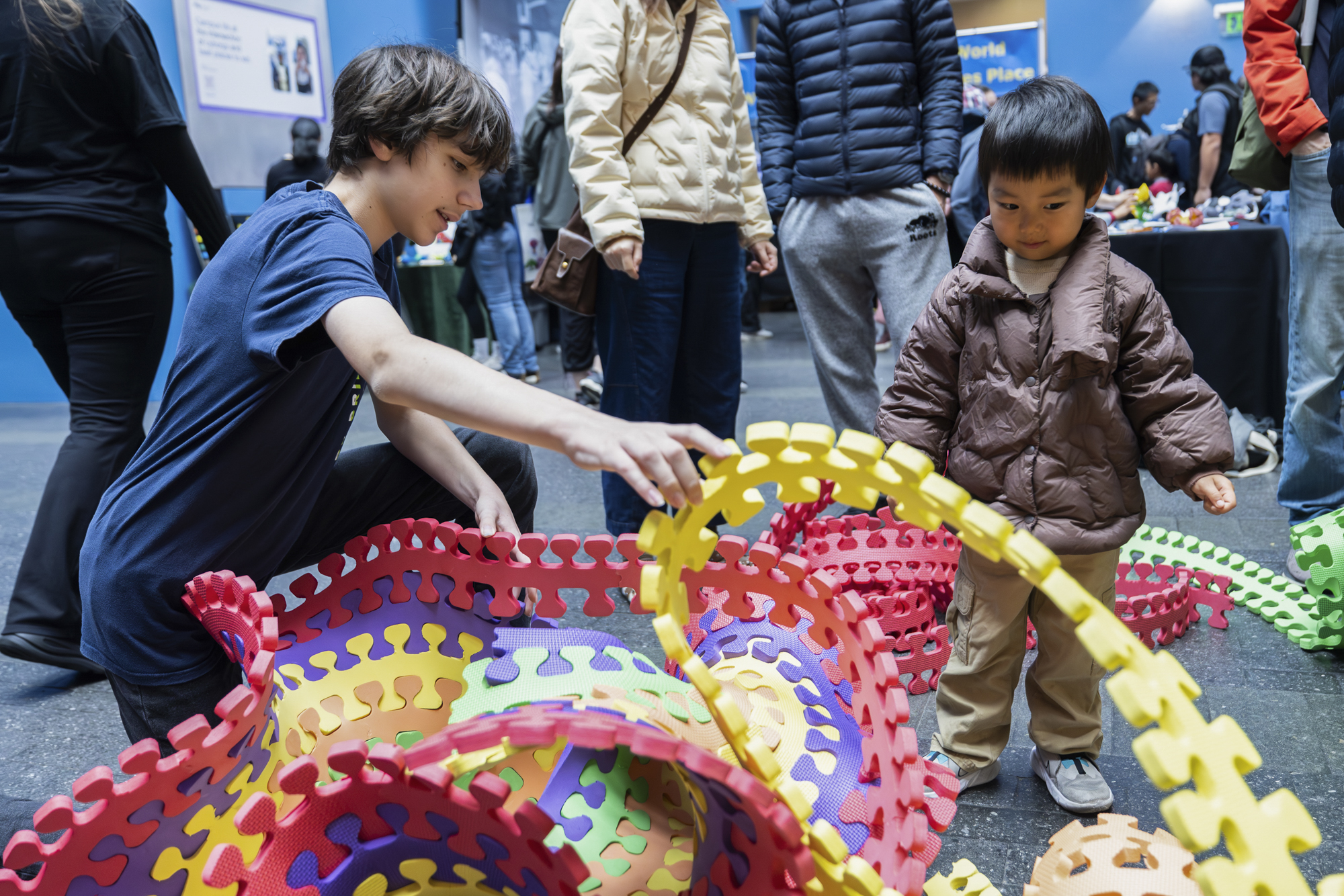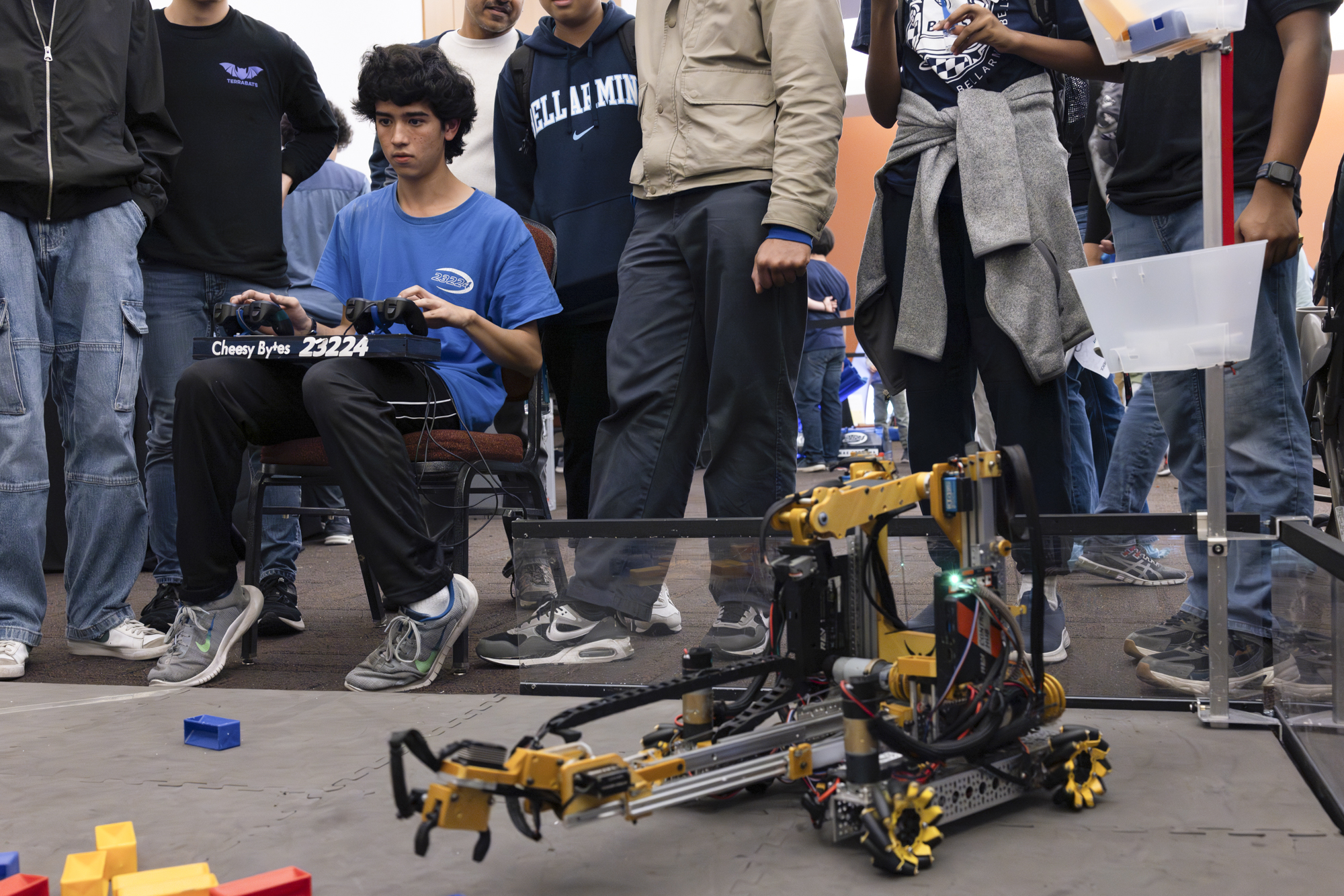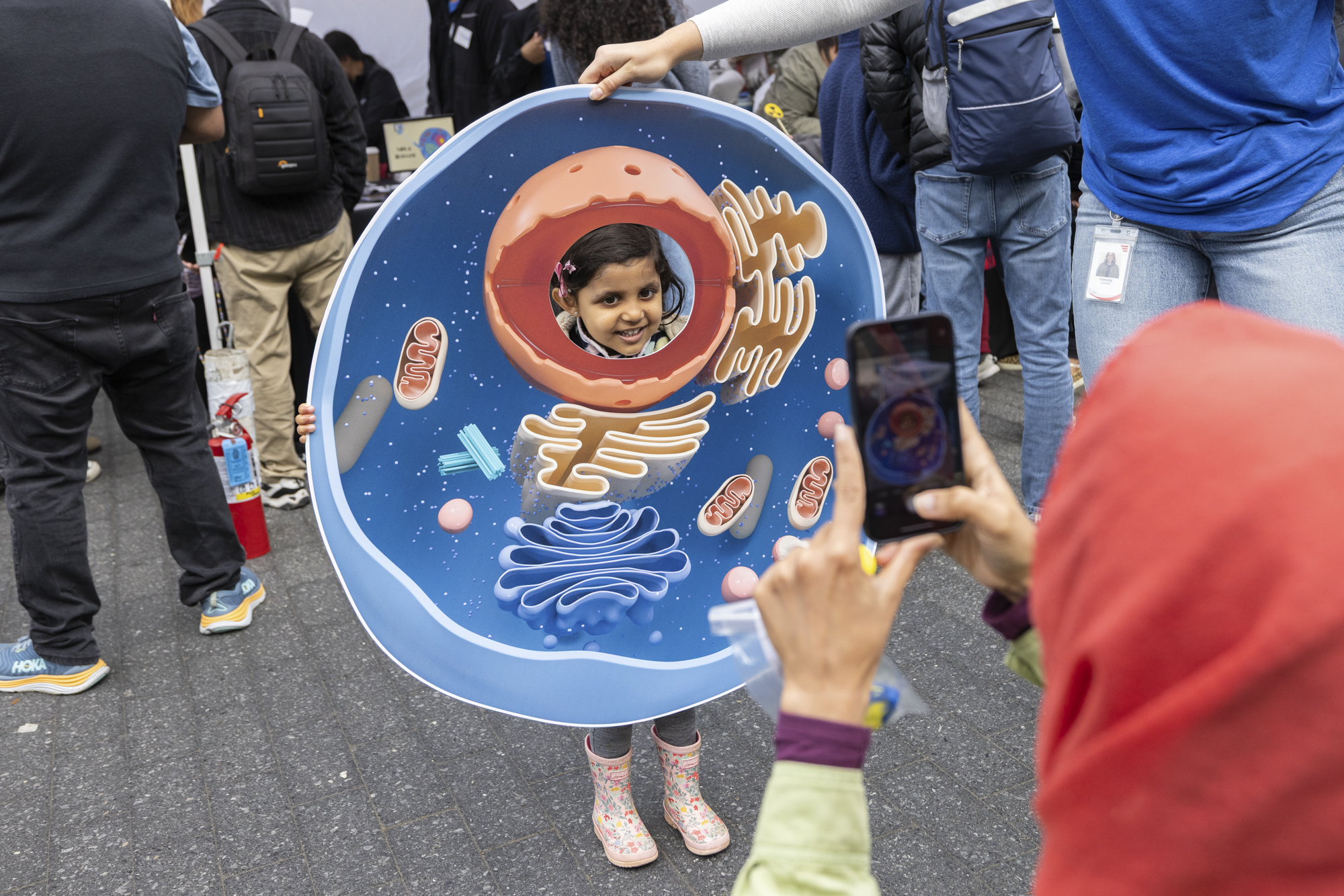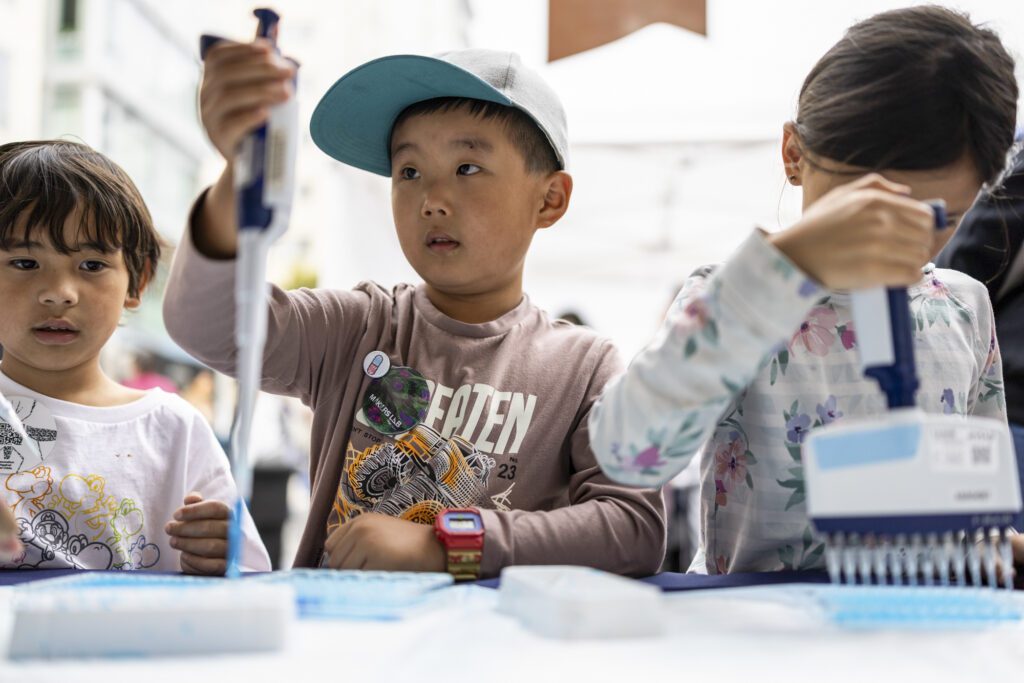Indoors, a chicken robot named Gary roamed the floors as kids twisted colorful DNA chains, peered through microscopes, and learned about the Bay Area’s geology, earthquakes and global warming.
Visitors also got a rare peek inside UCSF’s research labs — spaces usually off-limits to the public — exploring everything from neuroscience and human performance to cutting-edge robotics.

On one tour, participants learned how researchers conduct experiments with mice to study their brains. Mice are animals with brains genetically similar to those of humans.
“We behave differently when we’re anxious or when we’re experiencing fear, versus when we are feeling courageous. And mice do the same,” explained Alexandra Klein, postdoctoral researcher at UCSF, during a lab tour, adding that there are multiple experiments conducted in the lab to analyze a mouse’s behavior — all this to understand human brain functions better and potentially cure diseases. The tour even showcased a real mouse brain in a test tube.
“Here they get to learn a lot of things that might not be taught in the classroom,” said Zhang Zhe, a first-time attendee visiting with his family from the East Bay. His daughter, fascinated by engineering, was especially drawn to exhibits showing how motors and circuits bring robots to life.

The Robot Zoo was another hotspot, where attendees watched one robot called “RoboForce” navigate a maze, and another called Dynamene, designed to remove algae from reefs. Children gathered around tables to assemble their own robots guided by volunteers and researchers.
“There are a lot of activities that are inspiring for the kids, and super fun for adults as well,” Zhe said, adding that the science festival offers an unforgettable hands-on learning experience for future scientists and engineers.
For South Bay resident Rama Kariyappa, the event was a welcome break from screens and video games.

“This is a great place for kids to learn about what’s happening in the world,” he said. “The booths really help inspire kids to choose a path in science.”
That kind of inspiration is precisely what organizers hope for, said Katherine Nielsen, director at UCSF’s Science & Health Education Partnership.
“We always hear after the event from all of our exhibitors and our sponsors who are there leading activities and how rejuvenating it is for them to get to talk with the public about the work that they do and their passion for science,” Nielsen said.
Visitors get to engage directly with experts who guide each activity, offering a glimpse into real-world research and discovery. For Nielsen, the best part of the festival is the connection it fosters. “It really brings the community together. That’s one of the things that I love about it.”

